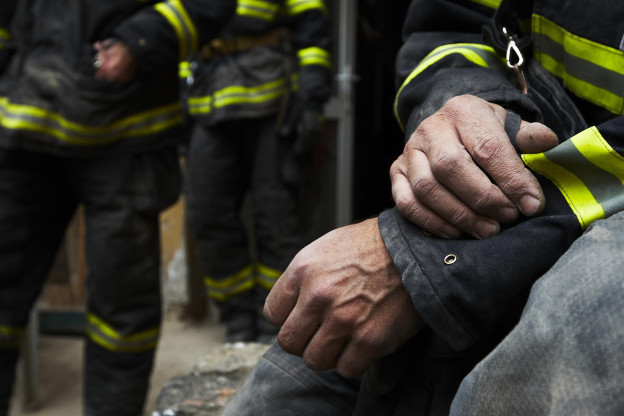First responders, including firefighters, police officers, and emergency medical technicians (EMTs), face unique challenges in their line of work. These professionals are often exposed to traumatic events that put them at a high risk for developing Post-Traumatic Stress Disorder (PTSD). While their work saves lives and protects communities, the emotional toll can be overwhelming. This article explores the prevalence, symptoms, and treatment options for PTSD in first responders, emphasizing the importance of awareness and support.
Understanding PTSD in First Responders
PTSD is a mental health condition that develops after experiencing or witnessing a traumatic event. For first responders, trauma can come from various sources, including:
– Firefighters: Witnessing fatalities, enduring dangerous conditions, and responding to catastrophic events like wildfires or explosions.
– Police Officers: Encountering violence, crime scenes, and life-threatening situations.
– EMTs: Providing care in emergencies involving severe injuries, fatalities, or life-threatening medical crises.
Statistics on PTSD in First Responders
Research highlights the significant impact of PTSD on first responders:
– According to the Substance Abuse and Mental Health Services Administration (SAMHSA), 30% of first responders develop behavioral health conditions, including PTSD, compared to 20% in the general population.
– A study in the Journal of Emergency Medical Services reported that 20% of EMTs experience PTSD symptoms.
– Among police officers, rates of PTSD are estimated to range from 15-18%, with some studies suggesting even higher rates in high-risk areas.
Symptoms of PTSD in First Responders
PTSD symptoms in first responders often overlap with those seen in other populations but can be exacerbated by the nature of their work. Common symptoms include:
1. Intrusive Memories
– Flashbacks or nightmares about traumatic incidents.
– Persistent, distressing thoughts related to specific calls or events.
2. Avoidance Behaviors
– Avoiding locations, people, or situations that remind them of trauma.
– Reluctance to discuss their experiences, even with close friends or family.
3. Hyperarousal
– Being constantly on edge, easily startled, or irritable.
– Difficulty concentrating or sleeping.
4. Negative Changes in Mood and Thinking
– Feelings of guilt, shame, or hopelessness.
– Emotional numbness or detachment from others.
– Difficulty finding joy in activities once enjoyed.
Why First Responders Are Vulnerable to PTSD
Several factors contribute to the high rates of PTSD in first responders:
1. Repeated Exposure to Trauma
Unlike a single traumatic event, first responders face repeated exposure to distressing situations throughout their careers, increasing the cumulative impact on mental health.
2. High-Stress Work Environment
First responders often work under intense pressure, making life-and-death decisions in unpredictable and dangerous conditions.
3. Stigma Around Mental Health
Many first responders feel reluctant to seek help due to stigma or fear of being perceived as weak. This cultural barrier can delay treatment and worsen symptoms.
4. Lack of Downtime
Long shifts, irregular schedules, and lack of time for self-care can contribute to burnout and exacerbate PTSD symptoms.
The Impact of Untreated PTSD
When left untreated, PTSD can significantly affect a first responder’s professional and personal life. Consequences may include:
– Burnout: Emotional and physical exhaustion leading to decreased job performance.
– Substance Abuse: Using drugs or alcohol as a coping mechanism.
– Relationship Strain: Difficulty maintaining close relationships due to emotional detachment or irritability.
– Physical Health Issues: Increased risk of heart disease, high blood pressure, and other stress-related conditions.
– Suicide Risk: Studies show that first responders are at a higher risk of suicide compared to the general population. For example, a Ruderman Family Foundation report found that more firefighters and police officers die by suicide than in the line of duty each year.
Treatment Options for PTSD in First Responders
Effective treatment can help first responders manage PTSD and regain control over their lives. Common approaches include:
1. Trauma-Focused Therapy
– Cognitive Behavioral Therapy (CBT): Helps individuals identify and change negative thought patterns related to trauma.
– Eye Movement Desensitization and Reprocessing (EMDR): Facilitates the processing of traumatic memories to reduce emotional distress.
2. Peer Support Programs
Connecting with fellow first responders who have experienced similar challenges can provide validation, encouragement, and shared coping strategies. Organizations like the International Association of Fire Fighters (IAFF) offer peer support programs.
3. Medication
– Antidepressants: SSRIs like sertraline (Zoloft) or paroxetine (Paxil) are commonly prescribed for PTSD.
-Sleep Aids: Medications like prazosin may help reduce nightmares and improve sleep quality.
4. Mindfulness and Stress Management
– Practices like meditation, yoga, and deep breathing can help regulate stress and promote emotional resilience.
– Regular physical exercise is also effective in managing PTSD symptoms.
5. Crisis Intervention Services
Emergency helplines and crisis services specifically tailored to first responders can provide immediate support. For example, Safe Call Now and Copline are confidential hotlines for first responders.
Building a Supportive Culture
Addressing PTSD in first responders requires systemic change to reduce stigma and promote mental health awareness. Steps include:
– Education and Training: Providing mental health education during training programs to normalize seeking help.
– Accessible Resources: Ensuring first responders have easy access to mental health services, including counselors and therapists.
– Leadership Support: Encouraging leaders to prioritize mental health and model seeking help as a sign of strength.
– Wellness Programs: Implementing programs that promote physical and mental well-being, such as on-site counseling or stress management workshops.
Final Thoughts
PTSD is a significant challenge for first responders, but with the right support and resources, recovery is possible. By prioritizing mental health, fostering supportive workplace cultures, and making treatment accessible, we can help firefighters, police officers, and EMTs navigate the emotional toll of their work. If you or someone you know is a first responder struggling with PTSD, reaching out for help is a vital step toward healing. Remember, seeking support is not a sign of weakness but an act of courage.

